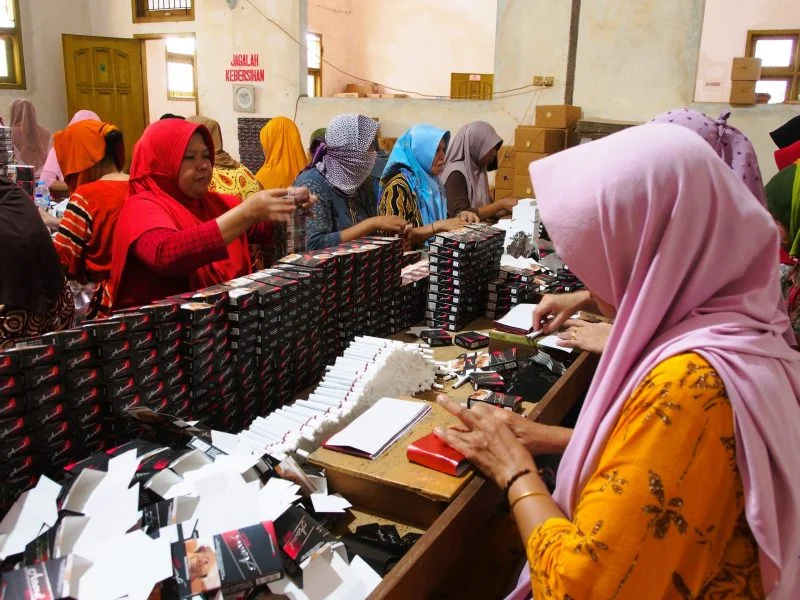
Businessicy – The Indonesian Cigarette Manufacturers Association (GAPPRI) has expressed concerns that Government Regulation (PP) Number 28 of 2024, which implements Law Number 17 of 2023 on Health, could have severe negative effects on the survival of the national legal kretek industry.
Henry Najoan, the Chairman of GAPPRI, argued that the provisions on Addictive Substance Safeguards in Articles 429 to 463 of PP 28/2024 might jeopardize national sovereignty.
He specifically pointed to Article 435, which states, “Anyone who produces and/or imports tobacco products and electronic cigarettes must comply with packaging standards, including design and labeling requirements.”
Henry suspects that Article 435 could be a prelude to the introduction of plain packaging—a long-standing goal of anti-tobacco groups that have pressured the government to ratify the Framework Convention on Tobacco Control (FCTC).
GAPPRI’s analysis suggests that the drafting process of PP 28/2024 has been contentious from the start, citing a lack of transparency and insufficient involvement of the public and stakeholders.
Henry argues that the government’s move to tighten regulations through PP 28/2024, particularly Articles 429 to 463, not only threatens to shutter legal kretek factories but also has broader social impacts. He predicts a sharp decline in the domestic demand for tobacco and cloves, with significant negative consequences for the livelihoods of tobacco and clove farmers, logistics workers, domestic traders, and others throughout the kretek industry supply chain. The legal kretek industry, he notes, is already vulnerable, as evidenced by the reduction in the number of factories from 4,000 in 2007 to 1,100 in 2022.
“The government should brace for a wave of unemployment, which will have both economic and social repercussions,” he said.
“U.S. Dollar Strengthening Against Rupiah: What Investors Need to Know”
Additionally, Henry highlighted that the country stands to lose substantial revenue from conventional tobacco excise duties, which could be exacerbated by a surge in illegal cigarette trade.
GAPPRI has also noted that PP 28/2024 might violate the United Nations International Covenant on Economic, Social, and Cultural Rights (ICESCR), which protects the economic, social, and cultural rights of individuals within their professions.
Furthermore, the regulation appears to prioritize the FCTC agenda over the welfare of farmers’ associations, labor unions, retail associations, business operators, and tobacco industry associations.
Henry emphasized that beyond health considerations, the government should also weigh other factors such as public welfare, job creation, the survival of tobacco farmers, and the sustainability of the national legal kretek industry, along with state revenue.
He asserted that national sovereignty should be reflected in the government’s ability to independently make policies suited to Indonesia’s conditions, rather than being influenced by foreign governments or international NGOs.
“GAPPRI strongly opposes PP 28/2024, which clearly aligns with foreign NGO agendas and the interests of competing industries aiming to undermine the national legal kretek sector,” he concluded.
“The Complete Information From Wikipedia About Kretek Industry”